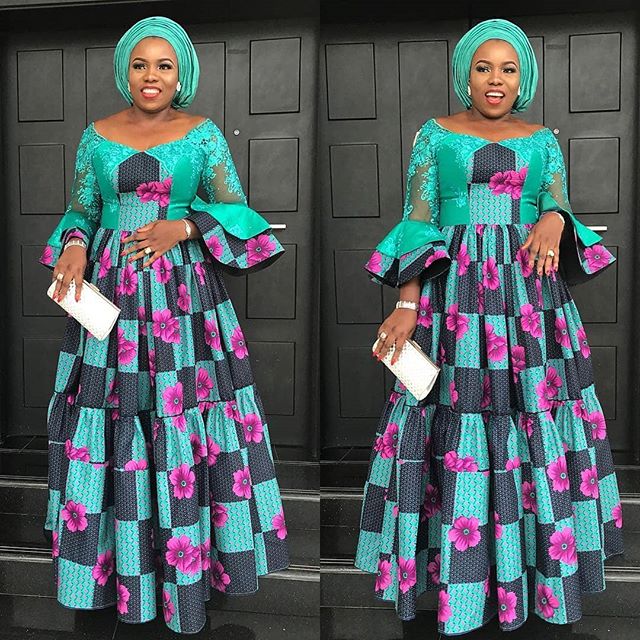Nigerian fashion styles are a vibrant and intricate part of the country’s culture, celebrating the diversity and rich heritage of its people. With an array of designs, colors, and fabrics, Nigerian fashion has gained international recognition, influencing global trends and showcasing the creativity of its designers. This article will explore the various styles, their historical significance, and how they have evolved over the years, providing insights into what makes Nigerian fashion unique.
In this comprehensive guide, we will cover essential aspects of Nigerian fashion, including key designers, the significance of fabrics, and how social media has transformed the fashion landscape in Nigeria. Join us as we uncover the beauty and complexity of Nigerian fashion styles, and discover why they continue to captivate audiences around the world.
Table of Contents
- The History of Nigerian Fashion
- Traditional Nigerian Attire
- Modern Nigerian Fashion Trends
- Fabrics and Materials Used in Nigerian Fashion
- Influential Nigerian Fashion Designers
- Nigerian Fashion and Social Media
- The Global Influence of Nigerian Fashion
- Conclusion
The History of Nigerian Fashion
Nigerian fashion has a rich history that reflects the diverse cultures of its people. Traditional garments have been worn for centuries, often symbolizing social status, ethnic identity, and cultural heritage. The evolution of Nigerian fashion can be traced through various periods, showcasing how historical events, colonial influences, and globalization have shaped the fashion landscape.
Historically, each ethnic group in Nigeria has its unique fashion styles, influenced by local customs, traditions, and the availability of materials. For example, the Yoruba people are known for their intricate Aso Oke fabrics, while the Igbo people have their traditional Isi Agu attire. Understanding these historical contexts is crucial for appreciating the richness of Nigerian fashion today.
Traditional Nigerian Attire
Traditional attire plays a significant role in Nigerian fashion, often worn during cultural celebrations, weddings, and festivals. These garments are not only a means of expression but also a way to preserve cultural heritage. Some of the most notable traditional outfits include:
- Aso Ebi: A uniform style worn by friends and family during special occasions, usually made from the same fabric.
- Buba and Iro: A traditional outfit for women, consisting of a blouse and wrapper.
- Agbada: A flowing robe worn by men, often accompanied by a cap.
- Isi Agu: A traditional attire for the Igbo people, often featuring animal prints.
Significance of Traditional Attire
The significance of traditional attire extends beyond mere aesthetics. These garments often carry deep cultural meanings and are essential for community bonding. Wearing traditional clothing fosters a sense of belonging and pride, especially during festivals and family gatherings.
Modern Nigerian Fashion Trends
In recent years, modern Nigerian fashion has gained immense popularity, with designers incorporating contemporary styles while maintaining cultural elements. The fusion of traditional and modern aesthetics has led to innovative designs that appeal to both local and international audiences.
Key Trends in Contemporary Nigerian Fashion
- Street Style: An emerging trend that showcases casual, yet stylish outfits often inspired by urban culture.
- Luxury Fashion: High-end designers are gaining recognition for their exquisite craftsmanship and unique designs.
- Eco-Friendly Fashion: A growing movement towards sustainable fashion, with designers focusing on ethical practices and materials.
Fabrics and Materials Used in Nigerian Fashion
The choice of fabrics plays a crucial role in Nigerian fashion. The most popular materials include:
- Ankara: A vibrant, printed cotton fabric widely used in various styles.
- Aso Oke: A traditional handwoven fabric known for its intricate patterns and textures.
- George: A fabric often used for making traditional attires, characterized by its unique designs.
Influential Nigerian Fashion Designers
Nigeria is home to numerous talented fashion designers who have made significant contributions to the industry. Some of the most influential designers include:
- Deola Sagoe: Known for her elegant designs that blend traditional and modern styles.
- Lisa Folawiyo: Renowned for her unique use of Ankara fabric and intricate embellishments.
- Folake Folarin-Coker: The founder of the luxury fashion brand Tiffany Amber, celebrated for her vibrant collections.
Nigerian Fashion and Social Media
Social media has transformed the fashion landscape in Nigeria, allowing designers and influencers to showcase their work to a global audience. Platforms like Instagram and Twitter have become vital for promoting Nigerian fashion, leading to increased visibility and opportunities for local talent.
The Global Influence of Nigerian Fashion
Nigerian fashion is not only celebrated locally but has also made a significant impact on the global fashion scene. Designers like Tsemaye Binitie and Maki Oh have showcased their collections at international fashion weeks, attracting attention from fashion enthusiasts and critics alike.
Conclusion
In conclusion, Nigerian fashion styles represent a rich tapestry of culture, history, and creativity. From traditional attire to modern trends, the evolution of Nigerian fashion continues to inspire and captivate audiences worldwide. As we move forward, it is crucial to support and celebrate these styles, ensuring that the vibrancy of Nigerian fashion remains alive for future generations.
We invite you to explore more about Nigerian fashion and share your thoughts in the comments below. Don't forget to share this article with fellow fashion enthusiasts and check out other articles on our site to stay updated on the latest trends!
Thank you for joining us on this journey through the fascinating world of Nigerian fashion. We look forward to welcoming you back for more insightful content!



